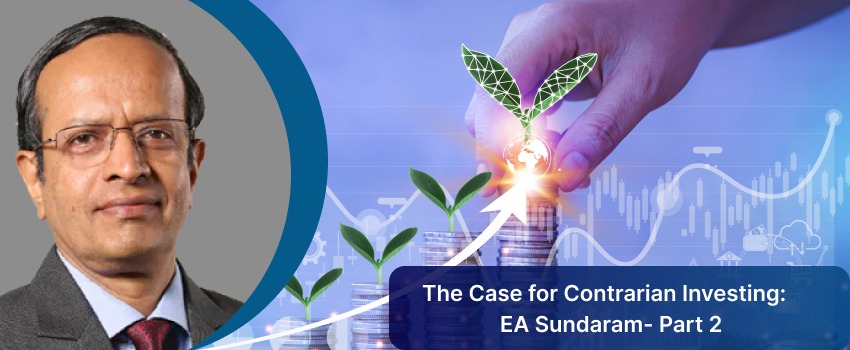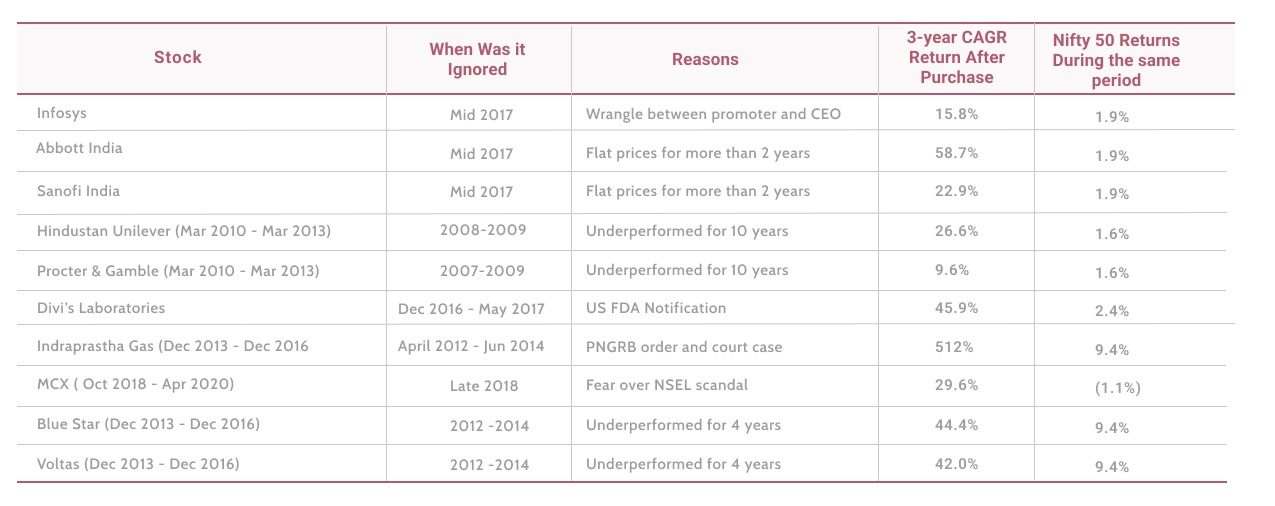In the world of value investing, Mr. Sundaram stands out with his unique approach, which he describes as "Commonsense Investing." His philosophy is straightforward: investment success can be achieved not only by making the right decisions but also by avoiding the wrong ones. Over his 29+ years in the investment industry, Sundaram has consistently demonstrated his ability to take significant contrarian positions, such as underweighting Technology in 1999, Infrastructure, Utilities, and Power in 2007, Midcaps in 2017, and excluding NBFC exposure in 2018. Throughout his career, Sundaram has held prominent positions, including Manager (Research) at SBI Mutual Fund, Head of Research and Fund Manager at Zurich India Mutual Fund, Senior Portfolio Manager at HDFC Mutual Fund, Portfolio Manager at M3 Investment Managers (a family office), and CIO and Portfolio Manager at PGIM India Mutual Fund. His extensive experience and strategic insights have made him a respected figure in the investment community, exemplifying the principles of commonsense investing. This blog is divided into two parts. Part 1 showcases the history of wealth creation and destruction across various cycles, while Part 2 highlights how an investor can navigate the markets to generate superior returns. Let’s dive into Part Two.
Investors Forget About Entry Valuations in a Bull Market
Investors are human and tend to give into human emotions such as envy. Often, when one investor with decent returns compares his returns to that of another, he may feel envious of the other one’s superior returns, no matter the risks involved. An investor may copy a strategy and invest in a theme that has delivered higher returns, believing that he would be able to get out relatively unharmed when the tides turn. This philosophy is also applicable at a higher level, as asset management companies that are highly ranked tend to attract the most assets under management, leading to pressure at other asset management companies that have generated decent returns over time. The desire to be number one and envy can make sane investors make the insane decision of participating at excess valuations.
The Road Less Travelled
An investor must, first and foremost, stay away from excess valuations. An investor does not need to precisely value a stock to know it is expensive like one does not have to know the exact weight of a person to know he’s fat. An investor must be comfortable with underperforming for a while as sectors in vogue keep generating returns. Having the discipline to stick to one’s investment strategy is key during such periods as one can often lose faith during periods of underperformance. An investor should buy a stock when it is unpopular and therefore cheaper, as the entry price is crucial. A stock is cheap because anticipated risks are factored in, but potential rewards are not, providing a cushion against further devaluation and losses. However, the likelihood of making a profit is higher when the business has solid underlying fundamentals and the investor exercises patience. This is because such stocks are only cheap when the business is facing temporary, not terminal, difficulties. Thorough research is essential to confirm that these challenges are indeed temporary before making the decision to invest. Research should not prioritize the growth prospects of an expanding business, as these are visible to all investors, resulting in high valuations. Instead, it should focus on the challenges faced by a strong business to determine whether these problems are temporary or permanent. This approach helps assess whether the current valuation is justified.
The Success of Such a Strategy
Overall, Mr. Sundaram’s strategy has outperformed the NIFTY 500 over a period of almost 18 years. While the NIFTY 500 generated an annualised return of 16%, his strategy generated a return of 20.12% after fees.
Source: CFA Society India
Mr. Sundaram’s track record shows that such a strategy can be highly successful, especially when the market tends to underperform. His strategy has generated strong alpha with a low correlation to market performance, making his success extremely noteworthy. None of the companies mentioned above are obscure, and are generally well known to the public. However, the problems faced by these companies in various periods were believed to be permanent, which led to investor worries. The fear of underperformance made investors sell their holdings, creating favourable valuations for buyers who deemed such problems as transitory.
Key Lessons:
- An investor should not aim to be the best in a particular year but aspire to generate above-average returns for a long period of time.
- Envying someone else’s portfolio is harmful and changing your strategy because of envy is worse.
- Stocks that are in vogue today would seldom be in vogue across cycles. Valuations matter and buying high-performing stocks at high valuations can often lead to wealth destruction.
- Stocks that have underperformed due to temporary reasons should be the hunting ground for an investor. These stocks are often shunned by investors due to their fear of underperformance which may provide valuation comfort, allowing an investor to benefit from earnings growth and valuation rerating.
- The goal of the research is to ascertain whether problems faced by a company are terminal or transient, as the former leads to permanent value destruction while the latter provides fertile investing opportunities.
Already have an account? Log in
Want complete access
to this story?
Register Now For Free!
Also get more expert insights, QVPT ratings of 3500+ stocks, Stocks
Screener and much more on Registering.
































Comment Your Thoughts: